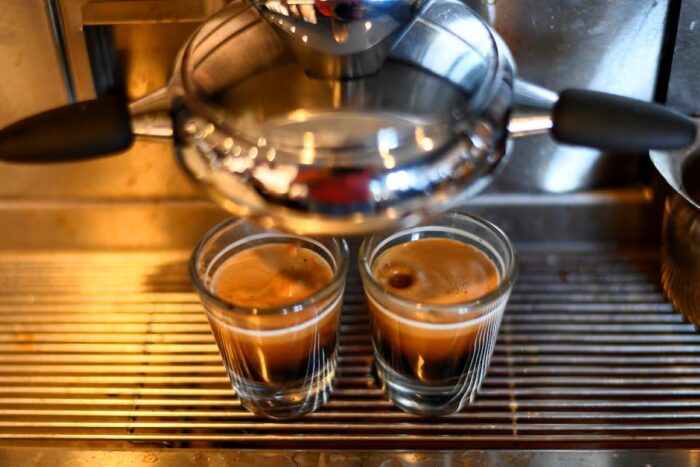New York – Qahwa World
Coffee roasters in the United States are depleting their stockpiles while waiting for the outcome of ongoing U.S.–Brazil trade negotiations — talks that could determine whether they must continue paying higher prices for alternative coffee sources.
Brazil, which supplies about one-third of the beans consumed by the world’s largest coffee market, has been effectively priced out of the U.S. since August, when President Donald Trump’s administration imposed a 50% import tariff on Brazilian coffee — a move widely viewed as politically motivated.
The tariff was seen as retaliation against Brazil’s left-wing President Luiz Inacio Lula da Silva, following tensions with the U.S. over his predecessor Jair Bolsonaro. The measure has disrupted the $340-billion U.S. coffee industry, leaving importers with stranded shipments, roasters cancelling deliveries, and consumers paying up to 40% more for coffee.
Industry estimates suggest U.S. coffee stockpiles will reach minimal levels by December. Some importers were forced to pay the 50% duty on cargoes booked before the tariff, while others redirected shipments to avoid it.
Steven Walter Thomas, owner of U.S. importer Lucatelli Coffee, said the tariff is “punitive, political, and personal — between Trump and Lula.” His company stored $720,000 worth of Brazilian coffee in a bonded warehouse in Florida to delay import taxes, while diverting some shipments to Canada to avoid the tariff, despite higher transport costs.
The cost surge has also squeezed major players such as Starbucks, whose CEO Cathy Smith said high coffee prices will remain a “headwind” through at least mid-2026.
Smaller roasters are feeling the pressure too. Downeast Coffee Roasters in Rhode Island said it managed to cancel some Brazilian orders but still faces rising costs for alternatives. Cancellation fees reached $20–$25 per 60-kg bag, on cargoes worth about $250,000 per container.
With Brazil largely off the U.S. market, prices for substitutes from Colombia, Mexico, and Central America have risen around 10%, while Brazilian prices have fallen about 5%.
Retail coffee prices in the U.S. climbed 41% year-on-year in September, reaching an average of $9.14 per pound, according to the Bureau of Labor Statistics — a key driver of food inflation. Tight supply and record-high Arabica futures on the ICE exchange continue to fuel the trend.
“I’m not looking too much into brands anymore — I’m going for the deals,” said Sherryl Legyin, a cashier from New Jersey.
“It used to be $6 or $7, now it’s $11,” added travel agent Yasmin Vazquez.
Traders estimate U.S. stocks at about 4 million 60-kg bags, likely to drop to 2.5–3 million by December — close to minimum operational levels. The U.S. typically consumes 25 million bags per year, with 8 million coming from Brazil.
President Lula said he remains optimistic that a trade deal with Washington could come “faster than anyone thinks.”
Trump responded cautiously: “I don’t know if anything’s going to happen, but we’ll see.”
Until then, the price of an American cup of coffee is expected to stay high.
The post US Roasters Tear Through Coffee Stocks Waiting for Brazil Trade Deal appeared first on Qahwa World.




